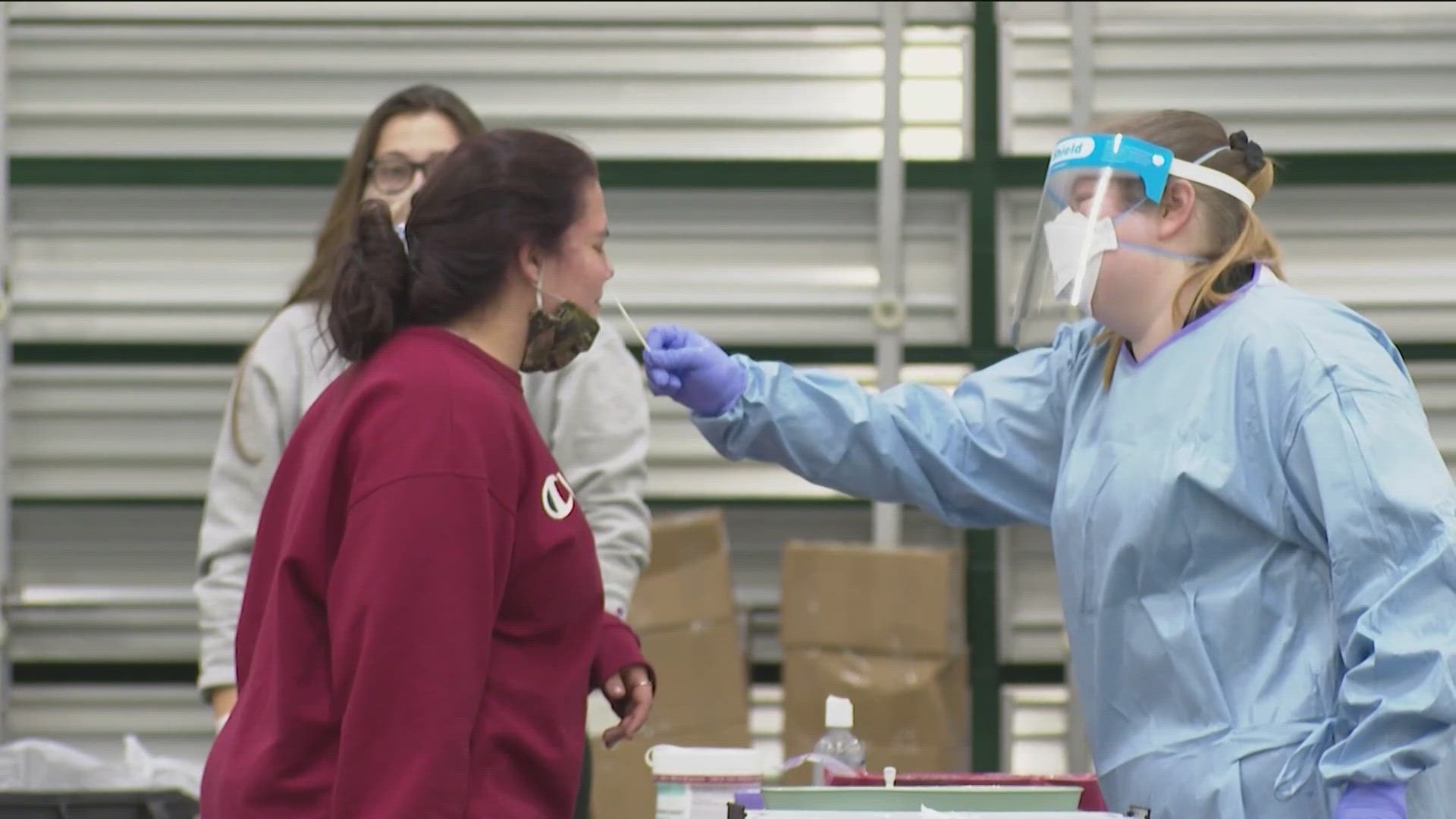MADISON, Wis. — All Dane County residents will be required to wear masks when indoors under the first order of its kind issued Tuesday in Wisconsin as deaths from COVID-19 surpassed 800 statewide and confirmed cases again increased, particularly among young adults.
Democratic Gov. Tony Evers said he was considering at a statewide mask mandate, but after the Wisconsin Supreme Court struck down his “safer at home” order in May, a new one requiring masks to be worn is “unlikely.”
“We really don’t know if I have the authority to do that," Evers said on a conference call, while encouraging everyone to stay at home and wear a mask.
He urged people not to politicize the wearing of masks, saying COVID-19 “doesn’t give a crap about whether you’re a Democrat or a Republican.”
The number of confirmed coronavirus cases in Wisconsin has nearly doubled in a little over a month. It took five months to get 16,500 confirmed cases, and since Memorial Day there have been nearly 17,000 confirmed cases. Testing has increased as well.
Evers, in urging people to remain vigilant and stay at home, said the spike must be reversed. He singled out people in their 20s to “step up" and take the virus seriously.
“It’s not worth it," he said. "No party, no bar, is worth it.”
The order from Public Health Madison and Dane County takes effect Monday. It's the first community to issue a mask requirement in Wisconsin, but it's unlikely to be the last. Milwaukee is also discussing taking similar steps.
“Public health research now shows that face coverings are critical to slowing the spread of COVID-19,” Janel Heinrich, director of Public Health Madison and Dane County, said in a statement.
Dane County is the state's second largest, with more than 500,000 people, and is home to the state capital of Madison as well as the University of Wisconsin-Madison campus, which plans to reopen to students in the fall.
The order comes after Dane County closed bars for indoor service and tightened limits on gatherings last week as confirmed cases rose. The order applies to anyone who is age 5 or older. People with health conditions that prevent them from wearing masks are exempt. Masks would have to be worn by anyone visiting another person’s home, but not inside their own residence.
Also on Tuesday, Evers announced that the state will be distributing more than 2 million cloth masks and more than 4,200 infrared thermometers to K-12 schools, and about 60,000 masks to local food processors and businesses.
The Wisconsin Department of Health Services also said it will not release the names of businesses and other places where there have been at least two confirmed cases of the coronavirus after businesses groups and Republican lawmakers opposed the idea.
RELATED: Mayor Carter signs executive order requiring face masks in licensed businesses, city facilities
The state chamber of commerce, the Wisconsin Grocers Association and the Wisconsin Restaurant Association all raised concerns last week about the impact it would have on businesses.
After receiving feedback, the Department of Health Services has “no immediate plans to list businesses with COVID-19 positives on our website,” said agency spokeswoman Elizabeth Goodsitt in an email Tuesday. That said, names of businesses could still be made public through open records requests filed by journalists and others, she said.
The state health department has 361 investigations into coronavirus outbreaks at workplaces and “other settings” that exclude facilities related to health care. There have been 507 investigations in total at non-health care facilities, according to the department's website.
The department does name nursing homes with active investigations.
Bill Lueders, president of the Wisconsin Freedom of Information Council, said releasing the names would give a better sense of how the virus is spreading, help people make decisions and force businesses to be more vigilant.
As of Tuesday, there had been 805 deaths and more than 32,500 confirmed cases. The 495 newly confirmed cases reported Tuesday were nearly 4% of all tests, a third day it dropped after a high of nearly 11% on Saturday. Of those who have contracted the virus, 79% have recovered and 2% have died, according to the state health department.
The number of infections is thought to be far higher because many people have not been tested, and studies suggest people can be infected with the virus without feeling sick.



